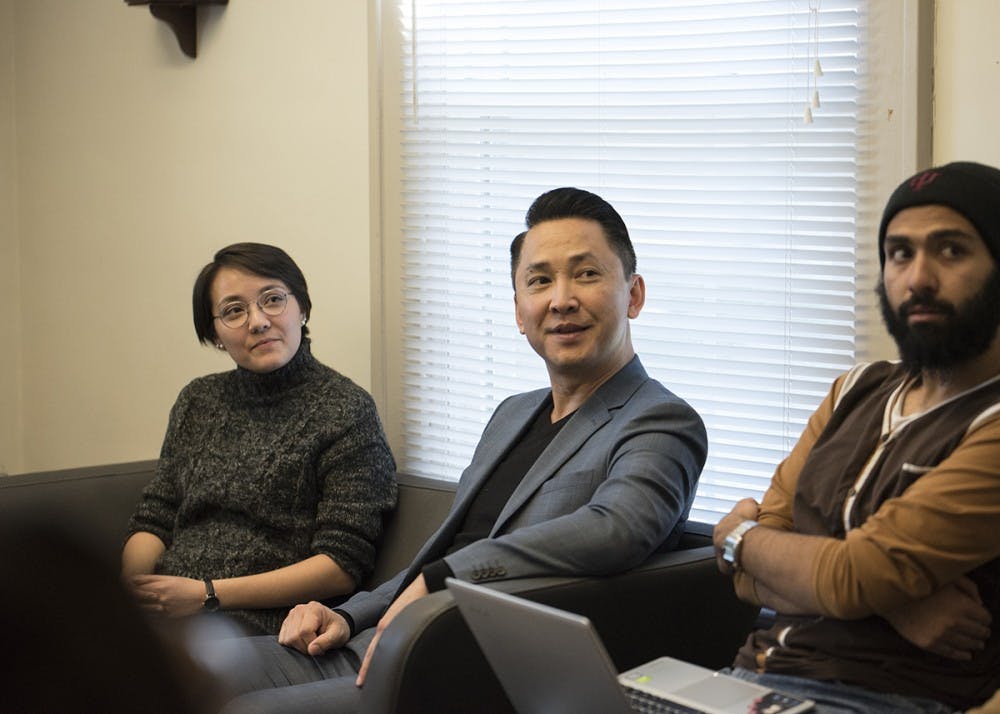The small living room of the Asian Culture Center flooded with murmuring visitors waiting for the arrival of Pulitzer Prize winning author Viet Nguyen as the clock neared 4 p.m.
The room was filled to the point where a group of visitors were forced to listen from the hallway and adjacent room.
“I’ve never seen this place so packed,” ACC director Melanie Castillo-Cullather said.
Nguyen was born in Vietnam and raised in America. In addition, his Pulitzer Prize-winning fiction novel, “The Sympathizer,” centered around an Asian American man who lived a double life as a spy for the Viet Cong.
Nguyen traveled from Los Angeles, where he teaches English and American studies at the University of South California, to speak with IU students, staff and faculty about the affirmative action admissions policy debate and how it affects Asian Americans.
Affirmative action policies, dating back to the civil rights movement in the 1960s, intend to provide equal opportunities for minority groups, often focusing on employment and education. Partially due to its complexity, affirmative action has been widely debated as to whether it is fair to people of all races and ethnicities.
Since the majority of Nguyen’s audience were students, the discussion often centered around college and admissions. In reference to education, affirmative action policies are meant to make universities provide equal admittance to all potential students, regardless of race or gender, though this is not always the case.
“It’s a very contentious issue,” said ACC graduate assistant Keiko McCullough.
For McCullough, a prime example of discrimination against Asian-American students has been a recent lawsuit at Harvard University.
The 2014 suit claimed that Harvard places quotas on the number of Asian-American students they admit. The complaint said that the average SAT score Asian Americans need to be accepted into the school is at least a hundred points higher than white students, and even higher than students of other races. McCullough said that the complaint is still pending.
Freshman Chithra Vedantam said that she was very cautious when applying to colleges for that reason.
“When I was applying for schools, I read all the books on what to do,” she said.
While researching, Vendantam found that some sources said that Asian or Asian-American students should not list ethnicity if it is not required, due to potential discrimination.
“It’s odd that you have to play this sort of game on whether to put your ethnicity on your application,” she said. “Checking off a box makes it so simplified when really, it’s more nuanced than that.”
Other audience members mentioned similar concerns about discrimination.
One Asian-American student said that she felt the need to show that she was different from other Asian Americans in her application, since they are often overlooked.
Although Nguyen agreed that there is inequity built into the education system, he said that it cannot be solely blamed on affirmative action and what it does or does not accomplish.
“The larger issue at hand is inequity in society, of which affirmative action is just a subset,” he said. “The issue is too complex to just focus on one part.”
Nguyen said while the critiques of affirmative action are not necessarily invalid, they are simplified and do not address the issue of inequity against Asian Americans as a whole.
Ultimately, affirmative action is still necessary in society today, he said.
“I spent last summer in Paris. They don’t recognize race at all, which, although it seems nice at first, is not the solution,” he said. “As flawed as affirmative action might be, we still need a mechanism to address race and embrace those racial differences.”




